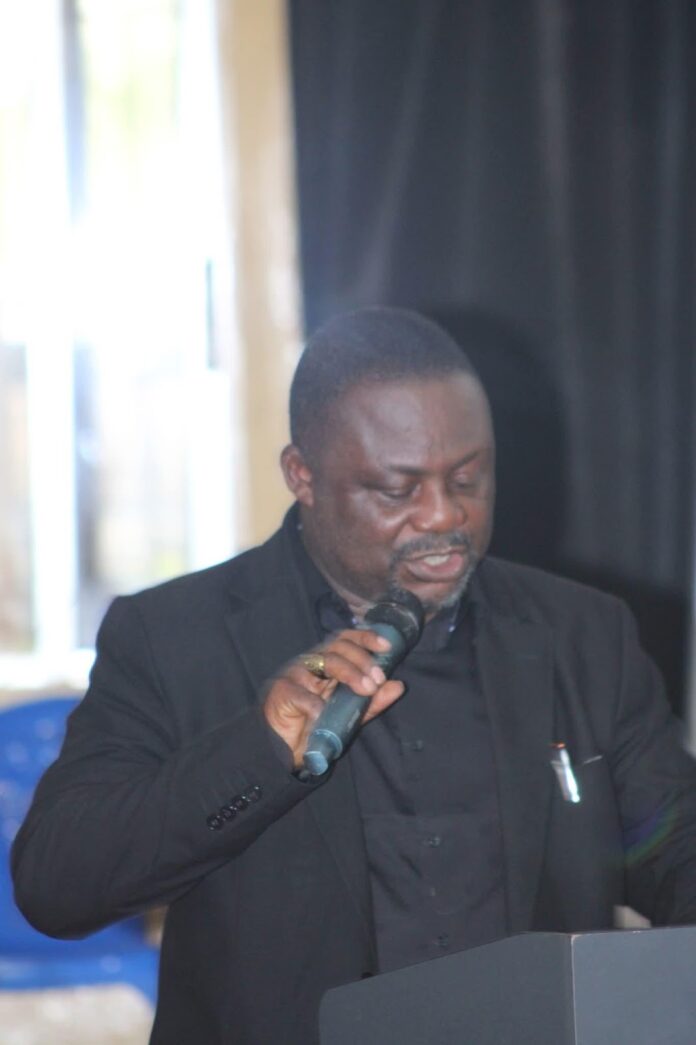—Former Grand Gedeh Superintendent Calls for Memorial Wall and End to Military Stigmatization
As Liberia solemnly laid to rest former President Samuel Kanyon Doe and former First Lady Nancy B. Doe in a state reburial and burial ceremony more than three decades after his deaths, former Grand Gedeh Superintendent Mr. Chris Bailey used the moment to deliver a searing (burning) message: President Doe was not the only one who died that day. Sixty-four others—soldiers and civilians—perished in silence, and Liberia has a duty to remember them too.
Speaking during the ceremony attended by President Joseph N. Boakai, lawmakers, government officials, local authorities, chiefs, and family members of the deceased, Bailey gave voice to the long-suppressed grief of families who lost loved ones in the violent events of September 9, 1990—the day President Doe was captured, tortured, and killed by the INPFL in the presence of regional peacekeepers from ECOMOG.
“I stand before you today not as a politician, nor a historian, but as a grieving Liberian and a Grand Gedean,” Bailey began. “My uncle, Assistant Minister of Logistics Hon. Joseph Kannah, and my brother-in-law, Brigadier General Washington Barlee, were among the many who met a horrific fate—not on the battlefield, but while escorting the Commander-in-Chief of this nation under the flag of peace.”
Bailey detailed the tragic betrayal that unfolded at the ECOMOG base where President Doe, believing in diplomacy and peace, surrendered with his entourage. According to Bailey, the soldiers accompanying the President had willingly handed over their weapons to the peacekeepers, expecting safety and neutrality in return.
“They surrendered not out of weakness, but out of commitment to peace. But that belief was betrayed,” Bailey declared. “Before the very eyes of those entrusted with keeping the peace, the INPFL committed the most heinous act. They murdered the President and butchered the men who stood by him. No intervention came. No resistance was raised.”
He condemned the inaction of ECOMOG, calling it a dark stain on Liberia’s history and a source of enduring pain for the families of the slain.
In a sharp rebuke of successive Liberian governments, Bailey criticized the decades-long refusal to recognize or honor the 64 men who died with Doe. He decried the persistent branding of those soldiers as “regime loyalists”—a label he said unfairly strips them of national dignity and discourages patriotic service.
“Successive governments turned their backs on them, as though loyalty to constitutional authority is something to be ashamed of,” he said. “But honor—true honor—has a longer memory.”
Bailey recited the Soldier’s Oath of the Republic, emphasizing that Liberia’s servicemen swear to uphold and defend the Constitution and obey the Commander-in-Chief, not to protect a regime but to serve the nation.
“This stigma of calling our soldiers ‘regime loyalists’ must stop. It dishonors those who serve and undermines morale within our Armed Forces. It’s time we see these men for what they were—sons of Liberia who answered a call of duty.”
Bailey commended President Boakai for having the moral courage to grant former President Doe a dignified reburial—something no previous Liberian leader had attempted in the 35 years since his death.
“You have opened a door that many believed would remain shut forever,” he told the President. “By choosing to rebury President Doe with the dignity that every elected leader deserves, you have done more than acknowledge one man—you have honored all those who stood with him and died with him.”
With emotion and urgency, Bailey made a public plea to President Boakai to complete the effort by supporting the construction of a Memorial Wall in Zwedru to inscribe the names of the 64 fallen servicemen and civilians.
“Let this not be the end, but the beginning,” he said. “We the families—wives, children, brothers, cousins—on bended knees, cry with one voice: contribute to the building of a Memorial Wall in a public square in Zwedru, so we too can lay flowers and honor our loved ones every Decoration Day.”
He also called on the Armed Forces of Liberia to formally recognize the surviving soldiers from that fateful day, arguing that such a move would reaffirm the nation’s commitment to honoring duty and sacrifice, regardless of political transitions.
In perhaps the most emotional moment of his remarks, Bailey turned his words to his fallen relatives and the many others whose families were left to grieve in silence:
“To my Uncle Joseph Kannah, my brother-in-law Washington Barlee, and all the others who died that day—we did not forget you. We never stopped saying your names in our homes, in our prayers, and in our pain. And today, finally, our nation says it too.”
He then asked all Grand Gedeans and service members present to stand for a moment of silence in honor of the 64 souls who perished—“sons of various tribes, loyal to one nation.”
Bailey concluded with a challenge to the nation: to write a new narrative where service, sacrifice, and loyalty to Liberia are not weaponized by politics but enshrined in national memory.
“Let it become a national creed: that no blood spilled in the name of Liberia will ever again go unrecognized,” he said. “May this act of reburial be the beginning of our healing—honest in our history, and united in our future.”
While the reburial of President Doe brings symbolic closure to a violent chapter in Liberia’s past, Bailey’s words served as a reminder that true reconciliation is not possible without full recognition of every life lost in service to the state—not just those who led it.
With the nation watching, and history being rewritten in real time, Bailey’s voice echoed far beyond Zwedru: “Not just Doe—64 others died defending Liberia. And they must never be forgotten again.”



